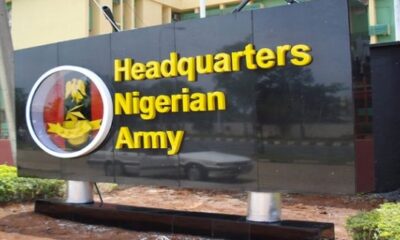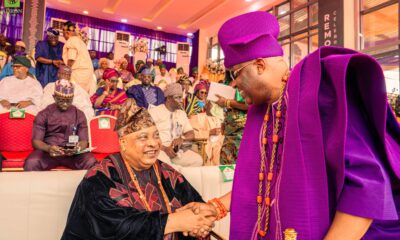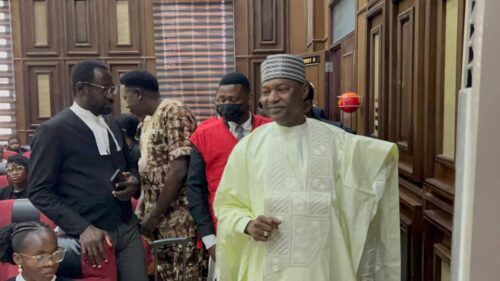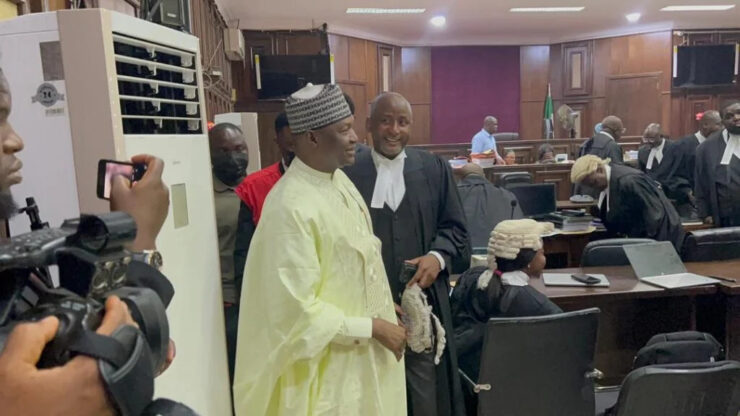The Minister of Power, Works and Housing, Babatunde Fashola, has expressed deep concern over the recourse of the National Assembly’s spokespersons to name calling over his observations on the 2017 Budget.
In a Press Release signed by his Special Adviser on Media, Hakeem Bello, the minister said he was worried that the National Assembly spokespersons failed to address the fundamental points about development-hindering whimsical cuts in the allocations to several vital projects under the Ministry of Power, Works and Housing as well as other ministries.
Mr. Fashola had, in a recent interview while acknowledging that legislators could contribute to budget making, disagreed with the practice where the legislative arm of government unilaterally alters the budget after putting members of the Executive through Budget Defence Sessions and Committee Hearings to the extent that some of the projects proposed would have become materially altered.
While acknowledging the need for legislative input from the representatives of the people to bring forward their developmental aspirations before and during the budget production process, the minister had observed that it amounted to a waste of tax payers money and an unnecessary distortion of orderly planning and development for all sections of the country, for lawmakers to unilaterally insert items not under the Exclusive or Concurrent lists of the Constitution like boreholes and streetlights after putting Ministries, Departments and Agencies, MDAS, through the process of budget defence.
Specifically with regards to the Ministry of Power, Works and Housing, Mr. Fashola listed the Lagos- Ibadan Expressway, the Bodo-Bonny road, the Kano-Maiduguri road, the Second Niger Bridge and the long drawn Mambilla Hydropower Project among others as those that the National Assembly materially altered the allocations in favour of scores of boreholes and primary health care centres which were never discussed during the Ministerial Budget Defence before Parliament.
In their responses, both the spokespersons of the Senate and the House of Representatives accused the minister of spreading “Half-Truths” and making “Fallacious “ statements because he (Fashola) should have known that they only interfered with projects that had concession agreements and private sector funding components. They also accused the minister of wanting to hold on to such projects in order that he may continue to award contracts.
However, while dismissing the allegations in the course of an official trip outside the country, Mr. Fashola said it was sad that the lawmakers would resort to name calling even without understanding the facts of what they were getting into. Taking the projects which the lawmakers chose to focus on one after the other, the minister insisted that there is no subsisting concession agreement on the Lagos – Ibadan Expressway adding that what the Infrastructure Construction Regulatory Commission (ICRC) has is a financing agreement from a consortium of banks which is like a loan that still has to be paid back through budgetary provisions.
There is no fallacy or half truth in the allegation that the budgets were reduced, he said. The spokespersons admitted this much and now sought to rationalise it by a concession or financing arrangement that has failed to build the road since 2006. The biggest momentum seen on the road was in 2016, Mr. Fashola added.
In the case of the Second Niger Bridge where one of the spokespersons alleged that the provision in 2016 budget was not spent and had to be returned, Mr. Fashola said that this displays very stark and worrisome gaps in knowledge of the spokesperson about the budget process he was addressing.
According to him, a budget is not cash. It is an approval of estimates of expenditure to be financed by cash from the Ministry of Finance.
“The Ministry of Finance has not yet released any cash for the Second Niger Bridge, so no money was returned.”
“Three phases of Early Works of piling and foundation was approved and financed by the previous government in the hope that a concession will finally be issued, which has not happened because concessionaires have not been able to raise finance.
“The continuation of Early Works IV could not start in May 2016 when the budget was passed because of high water level in the River Niger in the rainy season.
“The contract was only approved by the Federal Executive Council in the first quarter of 2017 and the contractor is awaiting payment.”
Dismissing the allegation that the works mnistry under him was holding on to projects that could be funded through Public Private Partnerships (PPP) so that he could award contracts as a tissue of lies, the minister said from Day One of his assumption of office, he made it clear publicly and privately that his priority would be to finish as many of the several hundreds of projects that his ministry inherited which had not been funded for close to three years.
According to Mr. Fashola, if the spokesperson was in tune with the Public Procurement Law which the National Assembly passed, he would realise that the minister has no unilateral power to award such contracts whose values are in billions of Naira, adding that all the new projects presented to the Federal Executive Council for approval were either federal roads requested by state governments or those put in the budget by the legislators to service their constituencies.
Mr. Fashola stated that the focus on contracts by the spokesperson is probably a Freudian slip that reveals his mindset and interests; when indeed he should be focused on developmental projects that strengthen the economy, which is the focus of the Economic Recovery and Growth Plan endorsed by the legislature.
Also responding to the issues that the budget for the Mambila Power Project was slashed because it contained a “whooping N17 billion” for Environmental Impact Assessment (EIA), the minister said there was indeed a mis-description of that particular Expenditure Head which could have happened during the classification of so many thousands of budget heads in the budget estimates.
According to him, what was described as a Budget Head for EIA was actually the nation’s counterpart funding to the China- EXIM loan to fund the building of the Mambila Project, adding that this was brought to his attention only after it had been slashed and that if the intention was not to slash arbitrarily it should have been brought to his attention to explain.
“At a joint meeting convened at the instance of the Budget Minister when I complained that the budget was slashed, the issue of EIA was brought to my attention and I explained what it was meant for,” Mr. Fashola said.
On the issue of the N20 billion provision in the Ministry’s Budget which the spokesperson alleged that the minister failed to give details of, Mr. Fashola said the spokesperson is hiding behind a finger.
The minister explained that it was a very basic principle of good planning to make provision for unforeseen contingencies; adding that in the 2016 budget , a similar provision enabled the ministry to respond to the failures of the Tamburawa Bridge in Sokoto, the Ijora Bridge in Lagos and the Gada Hudu Bridge in Koto Karfe along the Abuja – Lokoja Highway. Similarly, the ministry was able to pay N1 billion to the contractor handling the Suleja to Minna road.
The recent failures caused by flooding along Tegina-Mokwa-Jebba road and Tatabu in Niger State could not have been provided because they were not foreseen and there may be more. “This is what good planning is about,” Mr. Fashola said.
Noting that the Senate spokesperson missed the point in the haste to cast aspersions on him because he was not at the meetings he was speaking about, Mr. Fashola said he would have expected a more sober approach to the matter.
“In any event, allegations of half truth is only a flawed response to the constitutional and developmental issues that have plagued Nigeria from 1999 about how to budget for the critical infrastructure in Nigeria. It shows the conflict between the Executive that wants to build big Federal Highways; Bridges ; Power Plants; Rail; and Dams on one hand and Parliament that wants to do small things like bore holes , health centres , street lights and supplying grinding machines ,” he said.
According to the minister, being an institutional and not a personal issue, it won’t be out of place to seek a resolution of the conflict at the Supreme Court in order to protect the country’s future, because it is a clear conflict about how best to serve the people.
“As long as budgets planned to deliver life changing infrastructure are cut into small pieces, Nigeria will continue to have small projects that are not life changing, and big projects that have not been completed in 17 years . If a project would cost N15 billion and the contractor gets only a fraction of that, then things won’t move. Success should be defined by how many projects an administration is able to complete or set on the path of irreversible completion and not how many poorly funded contracts are awarded,” he said.

 ENTERTAINMENT3 days ago
ENTERTAINMENT3 days ago
 BIG STORY5 days ago
BIG STORY5 days ago
 ENTERTAINMENT3 days ago
ENTERTAINMENT3 days ago
 BIG STORY19 hours ago
BIG STORY19 hours ago
 BIG STORY2 days ago
BIG STORY2 days ago
 BIG STORY5 days ago
BIG STORY5 days ago
 BIG STORY22 hours ago
BIG STORY22 hours ago
 NEWS3 days ago
NEWS3 days ago











